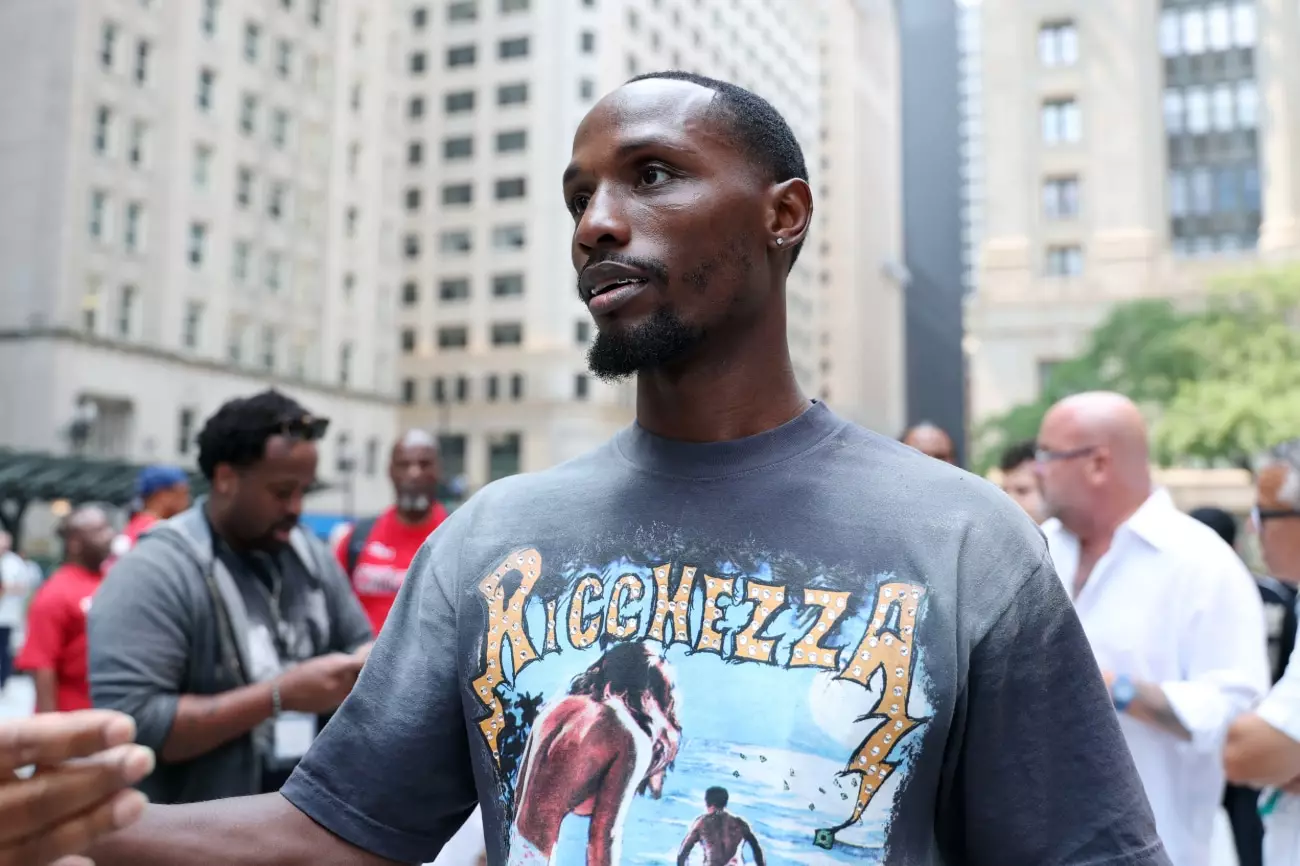Every athlete dreams of a defining moment — a chance to shake off doubts and solidify their place in history. For Kenneth Sims Jr., that moment arrives in Chicago, where he squares off against Oscar Duarte in a crucial 12-round bout. This fight isn’t merely about winning a single match; it symbolizes his potential breakthrough into the upper echelons of boxing. Sims sees this as his “breakout moment,” an opportunity to demonstrate that his self-belief is justified and that he belongs among elite fighters. His declaration of being the best in the 140-pound division isn’t made lightly; it’s a bold assertion rooted in years of perseverance, albeit marred by a less-than-stellar amateur and early professional record.
Yet, the narrative surrounding Sims revolves around more than just skills and record. It taps into the age-old theme of overcoming adversity, of fighting not just an opponent but also circumstances that have kept him from reaching the pinnacle sooner. In his mind, this fight is a chance to turn a long, arduous journey into a celebrated success story. Victory here would serve as a catharsis, confirming his talent and determination on a stage rife with difficulty and high expectations.
The Significance of Fighting in Front of Your Hometown Crowd
Fighting at home is less about winning and more about fulfilling a lifelong dream. Sims emphasizes how rare it has been for him to compete in Chicago—a city with limited boxing infrastructure—since his teenage years. The emotional weight of returning to his roots amplifies the stakes. Success in front of local fans is not just about personal pride but also about inspiring the community, demonstrating that perseverance can lead to greatness. For Sims, the fight is intertwined with his identity; it’s about showing young local talent that they, too, can aspire to higher achievements in boxing.
However, the pressure of performing in front of familiar faces can be a double-edged sword. While the support can motivate, it can also heighten nerves and expectations. For Sims, the real challenge lies in channeling this emotional energy into a focused, disciplined performance. His narrative suggests an underdog mindset—approaching the bout with the conviction that circumstances are stacked against him, yet he remains determined to defy those odds.
The Road Travelled and the Road Ahead
Despite his long career—over a decade of professional bouts—Sims’s journey has lacked the elite-level battles that might elevate his standing. His two most notable fights against Akhmedov and Castaneda didn’t showcase the dominance or skill execution necessary to position him as a serious contender. Critics might argue that his resume is a mirror of missed opportunities and questionable matchups, which have allowed doubts to linger about his true potential.
Nevertheless, Sims’s confidence appears unshaken. He believes he’s the best in his division and is ready to prove it through a gritty performance against Duarte, who is ranked no. 5 globally. But beneath that confidence lies a stark reality: victory isn’t enough to catapult him directly into a title shot. The path to a world championship remains cluttered with formidable contenders, bureaucratic hurdles, and organizational politics. Still, winning this fight could serve as a catalyst, opening doors and igniting the possibility of a future title challenge.
The Reality of Success and Its Limitations
While Sims views this bout as a potential career-defining moment, the broader landscape of professional boxing indicates that this victory is merely a stepping stone—one that still requires patience and resilience. The sport is riddled with politics, sanctioning bodies, and rankings that often favor established champions and fighters with more glittering résumés. Attaining a title requires not just skill but also strategic matchmaking, timing, and a bit of luck.
Moreover, the pressure to perform can sometimes work against fighters who are perceived as underdogs or outsiders. Simultaneously, the narrative surrounding Sims—his hometown pride, his long journey—could either motivate him or overwhelm him. The challenge lies in transforming emotional energy into precise and aggressive boxing. If he can do so, this fight might light the fuse for his next chapter. If not, even a narrow defeat could stall his ambitions and cast doubt on his self-assessed status as the division’s best.
Ultimately, Sims’s story underscores a universal truth in sports: grit and belief can propel you far, but victory is often a narrow, elusive window. His fight in Chicago risks becoming a turning point—either a showcase of resilience or a harsh lesson in humility. In either case, it vividly demonstrates that in boxing, as in life, hope and reality are often at odds—and only a handful of fighters manage to reconcile them on the world stage.

